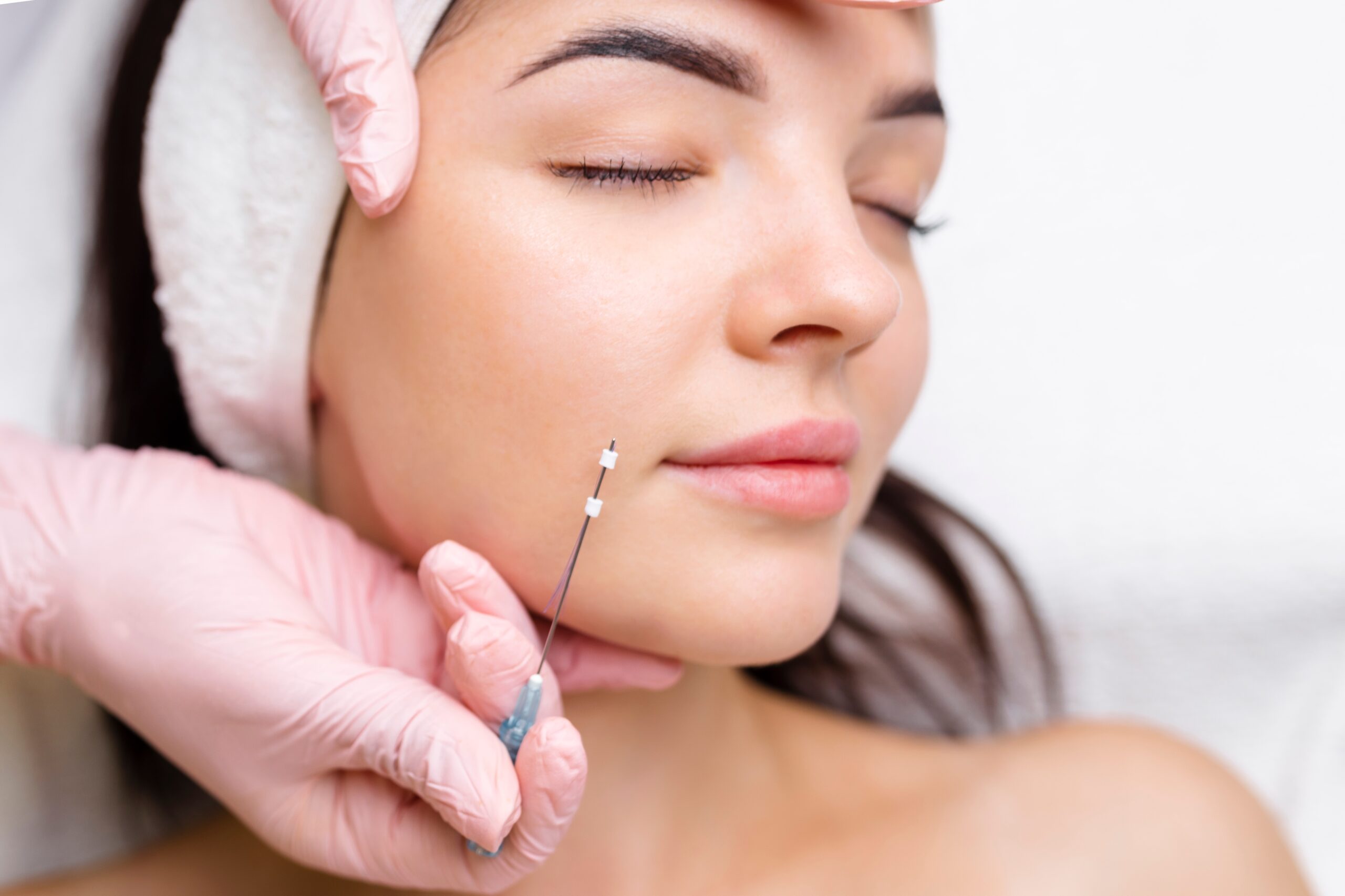Both PRP and exosome hair loss treatment can help people with thinning hair, but they work differently, and the timing between them can substantially affect your results. It’s crucial to know when and how often to get treatments before you start your hair restoration journey. This article will help you learn exactly that.
How PRP and Exosome Treatments Work for Hair Loss
PRP and exosome treatments work because they target hair follicle regeneration through unique biological mechanisms and distinct cellular pathways. These different mechanisms explain why each therapy needs its own protocol and shows results at distinct times.
Platelet Activation and Growth Factor Release in PRP
PRP hair treatment uses platelets, which are small blood components that do more than just help with clotting. These platelets act as powerful biochemical storehouses of healing compounds. They contain specialized storage units called alpha granules that pack numerous growth factors needed for tissue regeneration. The platelets release their regenerative cargo when doctors inject them into the scalp, stimulating hair growth by activating specific cellular signaling pathways.
Exosome-Mediated Cell Communication in Hair Follicles
Exosomes differ from PRP as tiny membrane-bound vesicles (20-100 nanometers in size) that act as cellular messengers. These microscopic structures carry proteins, nucleic acids (RNA and DNA), and lipids that help cells communicate.
Exosomes help fight hair loss by changing cell behavior without direct cell contact. These tiny messengers deliver bioactive cargo straight to target cells, including hair follicle stem cells in the bulge area of follicles. This process activates dormant hair follicles and initiates new growth cycles while blocking factors that suppress the pathway controlling hair follicle development. It also reduces inflammation, which creates better conditions for hair growth.
When to Start and How Often to Repeat PRP Sessions
Proper PRP treatment scheduling is vital for maximizing hair restoration results. Clinical research and expert consensus have shown specific timing protocols that work best for most patients.
Initial PRP Protocol: Three Sessions in Three Months
Your success with PRP hair treatment starts with an intensive initial phase. Research shows that three PRP treatment sessions within three months deliver the best results. This method lets healing and growth factors from your platelet concentrate saturate the scalp completely. You’ll need these treatments four to six weeks apart to get the best absorption of growth factors and steady stimulation of hair follicles.
This original series has several benefits:
- Activates dormant hair follicles
- Repairs damaged follicles
- Establishes a foundation for sustained hair restoration
You should see your first real improvements in hair thickness, texture, or density after these sessions.
Maintenance Frequency: Every Six to Twelve Months
After your first treatment series, you’ll need periodic maintenance sessions to keep and boost your results. Research shows that PRP therapy’s benefits can fade over time, which makes follow-up treatments key to long-term success.
Hair restoration specialists typically recommend maintenance PRP injections every 6 to12 months. This schedule lines up with your natural hair growth cycle and keeps follicles stimulated year after year. These maintenance visits usually involve just one treatment instead of multiple injections.
Exosome Treatment Timing and Follow-Up Strategy
Exosome therapy works differently from PRP, with a unique treatment schedule that needs fewer sessions but delivers great results. You can optimize the value of this advanced hair restoration treatment by knowing the right timing and follow-up approach.
Single Session Efficacy in Exosomes Hair Loss Treatment
The results from exosome therapy are remarkable after just one treatment. Studies show that exosome therapy works better than PRP in a single session, while PRP patients need multiple treatments to get similar results. This happens because each exosome injection contains highly concentrated regenerative compounds.
Follow-Up Timeline: Six to Twelve Months
Your results will develop in three main phases after exosome treatment:
- Phase 1 (3-4 weeks): You’ll notice less daily hair shedding and a healthier scalp.
- Phase 2 (3 months): New fine hair starts growing and existing strands become thicker.
- Phase 3 (6-12 months): Hair density improves visibly with lasting effects.
When to Consider a Second Exosome Session
Despite excellent single-session results, you might need additional treatments based on your hair loss pattern and how your body responds. Most experts suggest waiting at least six months before a second session. This gives your body enough time to adjust fully to the first treatment without overlapping inflammatory responses.
Results can last longer with maintenance sessions every 6 to 12 months. You might need two to three sessions over 12 to 18 months if you have advanced hair thinning.
Spacing Guidelines for PRP vs Exosomes
The right timing between PRP and exosome treatments plays a vital role in hair restoration. These treatments work best with specific intervals that match your hair follicles and scalp’s natural cycles.
Minimum Interval Between PRP Sessions: Four Weeks
Hair restoration experts agree that PRP sessions need at least four weeks of spacing to deliver the best results. This timeframe serves several key purposes.
Your scalp needs time to fully absorb the injected growth factors. This creates the perfect environment to stimulate hair follicles. The four-week gap also aligns with your natural hair growth cycle, giving follicles enough time to respond.
Standard protocols suggest three to four original PRP sessions with four- to six-week gaps. Using proper timing during the first three months is vital. This period lays the foundation for visible thickening by filling the scalp with growth factors. Sessions that are too close together might overwhelm your scalp, while gaps that are too long could reduce the overall benefits.
Exosome Reapplication: Not Before Six Months
Exosome treatments need much longer breaks between sessions than PRP therapy. Without doubt, this reflects their strength and how differently they work.
Clinical data show you should wait at least six months before a second exosome treatment. This extended break allows:
- Your body to fully absorb and use the exosome components.
- A clear picture of how you respond to the original treatment.
- The best long-term benefits without extra treatments.
Many people see substantial improvements after just one exosome session. Results often last six months or longer. This long-lasting effect explains why exosome schedules differ from more frequent PRP treatments.
Avoiding Overlapping Inflammatory Responses
PRP and exosome treatments trigger controlled inflammatory responses that lead to regeneration. The right spacing prevents these responses from clashing with each other.
Treatments that happen too often might cause too much inflammation. This could work against the healing benefits. Sticking to recommended intervals—four to six weeks for PRP and at least six months for exosomes—creates the ideal environment for each treatment to work.
The Beauty Vault team in West Hollywood can adjust these guidelines based on your response, pattern of hair loss, and overall health. Regular checkups during treatment ensure these intervals stay right for your specific case.
Safety, Side Effects, and Over-Treatment Risks
PRP and exosome treatments have exceptional safety records. Understanding what it all means helps you get ready for the best possible hair restoration results.
Scalp Sensitivity and Injection Site Reactions
Hair restoration treatments come with temporary side effects that go away quickly without major problems. PRP sessions might leave you with:
- Mild tenderness or swelling where we injected, lasting 12 to 24 hours.
- Temporary redness that fades in a few days.
- Occasional headaches from pressure sensations.
Exosome treatments show similar mild reactions, especially temporary redness and sensitivity.
Risk of Diminishing Returns with Frequent PRP
Getting PRP treatments too often might work against you, even though you want faster results. Research shows that too many treatments can:
- Make each of the following treatments less effective.
- Trigger inflammatory responses that overload your body’s healing.
- Put extra stress on your scalp tissue.
Work with the Beauty Vault Team to Time Your PRP and Exosome Treatments
The timing between PRP and exosome treatments is a vital factor in hair restoration efforts, so you need an individual-specific approach. If you partner with the Beauty Vault team in West Hollywood, you’ll enjoy a safe and rewarding journey toward fulfilling your aesthetic vision. Learn more now by calling (323) 800-6770 or filling out a contact form.
FAQs
Q1. How frequently should PRP treatments be scheduled for hair restoration?
PRP treatments for hair restoration typically involve an initial series of three to four sessions spaced four to six weeks apart. After the initial series, maintenance sessions are usually recommended every 6 to 12 months to sustain results.
Q2. What is the recommended interval between exosome treatments for hair loss?
Exosome treatments for hair loss generally show significant results after a single session. It’s recommended to wait at least six months before considering a second treatment, allowing time for full effects to manifest.
Q3. How long does it take to see results from PRP or exosome treatments?
For PRP, initial improvements may be noticed within one to two months, with visible thickening at three to six months. Exosome treatments may show noticeable improvements within three months, with full effects typically seen between 6 to 12 months after treatment.







